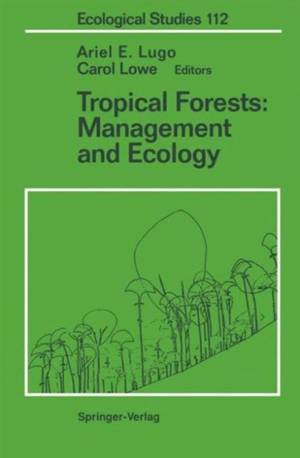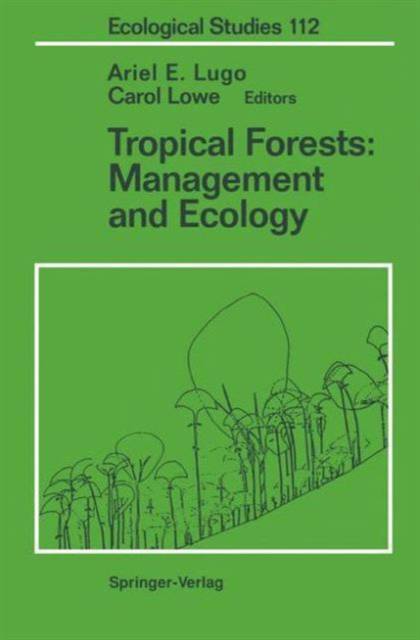
Bedankt voor het vertrouwen het afgelopen jaar! Om jou te bedanken bieden we GRATIS verzending (in België) aan op alles gedurende de hele maand januari.
- Afhalen na 1 uur in een winkel met voorraad
- In januari gratis thuislevering in België
- Ruim aanbod met 7 miljoen producten
Bedankt voor het vertrouwen het afgelopen jaar! Om jou te bedanken bieden we GRATIS verzending (in België) aan op alles gedurende de hele maand januari.
- Afhalen na 1 uur in een winkel met voorraad
- In januari gratis thuislevering in België
- Ruim aanbod met 7 miljoen producten
Zoeken
Tropical Forests: Management and Ecology
€ 153,95
+ 307 punten
Omschrijving
Forestry professors used to remind students that, whereas physicians bury their mistakes, foresters die before theirs are noticed. But good institutions live longer than the scientists who contribute to building them, and the half-century of work of the USDA Forest Service's Institute of Tropical Forestry (ITF) is in plain view: an unprecedented corpus of accomplishments that would instill pride in any organization. There is scarcely anyone interested in current issues of tropical forestry who would not benefit from a refresher course in ITF's findings: its early collaboration with farmers to establish plantations, its successes in what we now call social forestry, its continuous improvement of nursery practices, its screening trials of native species, its development of wood-processing technologies appropriate for developing countries, its thorough analysis of tropical forest function, and its holistic approach toward conservation of endangered species. Fortunately, ITF has a long history of information exchange through teaching; like many others, I got my own start in tropical forest ecology fromjust such a course in Puerto Rico. And long before politicians recognized the global importance of tropical forestry, the ITF staff served actively as ambassadors of the discipline, visiting tropical coun- tries everywhere to learn and, when invited to do so, to help solve local problems. It is a general principle of biogeography that species' turnover rates on islands are higher than those on continents. Inevitably, the same is true of scientists assigned to work on islands.
Specificaties
Betrokkenen
- Uitgeverij:
Inhoud
- Aantal bladzijden:
- 466
- Taal:
- Engels
- Reeks:
- Reeksnummer:
- nr. 112
Eigenschappen
- Productcode (EAN):
- 9781461275633
- Verschijningsdatum:
- 16/09/2011
- Uitvoering:
- Paperback
- Formaat:
- Trade paperback (VS)
- Afmetingen:
- 156 mm x 234 mm
- Gewicht:
- 671 g

Alleen bij Standaard Boekhandel
+ 307 punten op je klantenkaart van Standaard Boekhandel
Beoordelingen
We publiceren alleen reviews die voldoen aan de voorwaarden voor reviews. Bekijk onze voorwaarden voor reviews.








